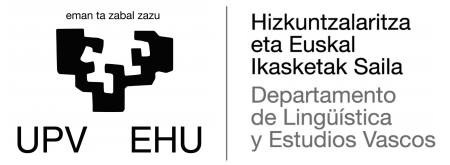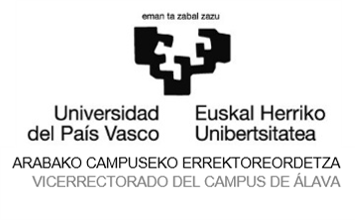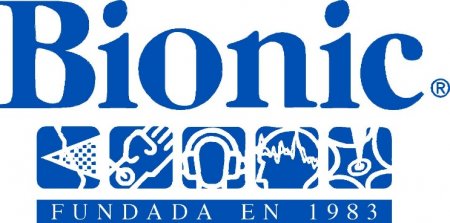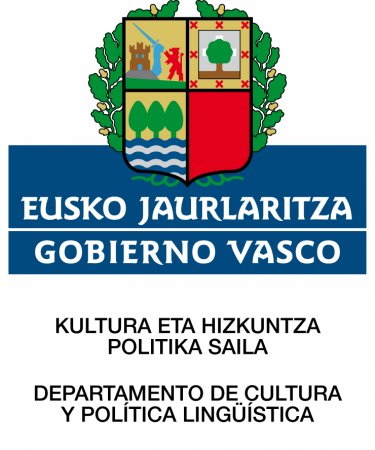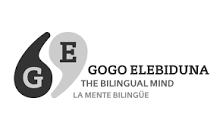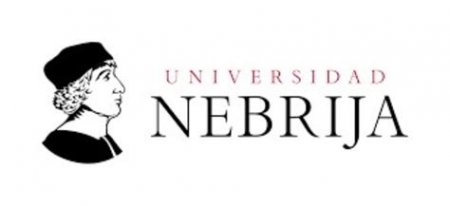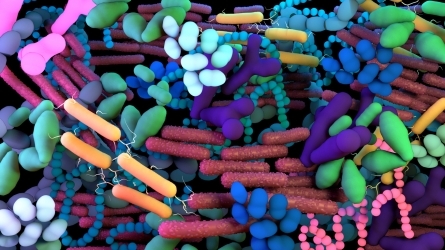
XVI. Nazioarteko Psikohizkuntzalaritza Sinposioa
ISP nazioarteko eta disziplinarteko foro zientifikoa da. Bertan, hizkuntzaren ikerketa edozein modu, esparru eta dimentsiotan gauzatzen duten jakintza-alorrak aintzakotzen dira; ideia berriak kitzikatu, ezagutza zabaldu eta lana banatzeko aukera paregabea eskaintzen duelarik.
Azalpena
Gogo Elebiduna ikertaldeak XVI Psikohizkuntzalaritza Sinposiora gonbidatzen zaitu Vitoria-Gasteizeko hirian 2023ko maiatzaren 31tik ekainaren 2ra bitartean.
Psikolinguistikaren Nazioarteko Sinposioa (ISP) psikolinguistikaren ikerketarekin erlazioa duen edozein gai jorratzen duen ikerlariontzako elkargunea izan da azken 30 urteotan. Psikohizkuntzalaritzak eta neurohizkuntzalaritzak hizkuntzaren jabekuntzan, ekoizpenean eta ulermenean parte diren irudikapenak (fonemak, grafemak, hitzak, egitura sintaktikoak, diskurtsoa, etab.) eta prozesuak ikertzean datza, hiztun elebakarrak ez-ezik, elebidunak eta eleaniztunak ere kontutan hartuz. Beraz, symposium honek ondoren zerrendatzen diren gaiak ikertzen dituzten hizkuntzalariak, psikologoak, filosofoak, pedagogoak, logopedak, eta beste hainbat alorretako ikerlariak biltzen ditu: hizkuntzaren modalitate ezberdinetako (ahozkoa, idatzizkoa, zeinuzkoa) ekoizpeneko eta ulermeneko irudikapen mailak (prozesamendu fonologikoa eta ortografikoa, prozesamendu semantikoa eta fonologikoa, prozesamendu sintaktikoa, sarbide lexikoa, diskurtsoaren prozesamendua eta pragmatika, etab…), elebitasuna, bigarren hizkuntzen jabekuntza prozesuak haur eta helduengan, hizkuntzaren prozesamendua zahartzaroan, hizkuntzen patologiak (afasia, alzheimer, parkinson, etab.), hizkuntza eta hizkuntzaren irudikapena burmuinean, hizkuntzalaritza esperimentaleko metodoak eta abar luze bat.
Helburuak
Nazioarteko Psikohizkuntzalaritza Sinposioak hizkuntzaren prozesamendua ikertzen diharduten hizkuntzalari, psikologo, filosofo, logopeda eta beste hainbat jakintza arlotako profesionalak biltzeko elkargunea izatea du helburu.
ISPak ideia berrriak kitzikatu, ezagutza zabaldu eta lana banatzeko aukera paregabea eskaintzen du.
Jarduera nori zuzenduta
- Unibertsitateko ikaslea
- Irakasleak
- Profesionalak
Zuzendariak
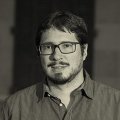
Mikel Santesteban Insausti
Euskal Herriko Unibertsitatea - Universidad del País Vasco (UPV/EHU)
Euskal Herriko Unibertsitateko (UPV/EHU) ikertzaile doktore iraunkorra 2020. urtetik eta Gogo Elebiduna ikerketa-taldeko kidea. Zientzia Kognitiboa eta Hizkuntzan doktorea Bartzelonako Unibertsitatean (2006), Lexical representation and selection in bilingual speech production tituludun tesiarekin (zuzendaria: Albert Costa). Doktore-ondoko ikerlaria University of Edinburgh-en (2007-2010). 2010etik 2020 bitartean, Juan de la Cierva eta Ramón y Cajal ikerlari bezala lan egin du UPV/EHUn. Bere lan-eremua psikolinguistika da, eta bere ikerketa-arlo nagusia elebitasuna eta hizkuntzaren ekoizpenean eta ulermenean parte hartzen duten mekanismo kognitiboak dira, jaiotzetiko hizkuntzan eta bigarren hizkuntzan. Gaur egun, esaldi barneko kode-aldaketa (codeswitching) prozesuak ikertzen ditu, eta baita adinak hizkuntzaren prozesamenduan duen eragina ere, besteak beste. Jakiunde Zientzia, Arte eta Letren Akademiako kide gaztea da, 2016. urtetik. Hizkuntzalaritza Teoriko eta Esperimentala Masterreko (UPV/EHU) zuzendaria da 2019. urtetik gaur arte.

Kepa Erdozia Uriarte
Euskal Herriko Unibertsitatea - Universidad del País Vasco (UPV/EHU)
Ikertzaile irakunkorra naiz Euskal Herriko Unibertsitean (EHU/UPV). Horrez gain, master eta gradu programa ezberdinetan irakasten dut. Nire ikerketan, elebidun talde ezberdinen prozesamendu sintaktikoa aztertzen dut bi hizkuntzek burmuinean duten irudikapena ezagutu asmoz. 2006an, doktore maila lortu nuen hizkuntzalaritza formaleko zenbait alderdi nagusi neurozientzia kognitibotik ekarritako tekniken bidez aztertuz. Ondoren, lehenengo doktorego-ondoko kontratua jaso nuen Frantziako Cognitive Neuroimaging Unit (INSERM-U562) taldean lan egiteko 2006tik 2008ra. Bigarren doktorego ondoko kontratua EHU/UPVko ELEBILAB taldean egin nuen. Bertan, elebidunen hitz hurrenkera prozesamendua ikertzeari ekin nion berriro neuroirudien tekniken bidez. Azken hamar urte pasatxoetatik hona, Gogo Elebiduna ikertaldeko kidea naiz eta bigarren hizkuntzen ikasketa prozesuak ikertzen ditut.
Hizlariak
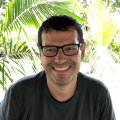
Balthasar Bickel
Universität Zürich
I got my graduate training in the Cognitive Anthropology Group at the Max-Planck Institute for Psycholinguistics in Nijmegen and received my Ph.D. degree in 1997 from the University of Zürich. From 1995 through 1998 I taught part-time in Zürich and worked as a researcher at the University of Mainz. I then spent three years at the University of California, Berkeley, on a postdoctoral fellowship sponsored by the Swiss National Science Foundation. In 2001 I completed my Habilitation at Zürich and was awarded an extracurricular professorship (Förderungsprofessur) by the Swiss National Science Foundation. From 2002 until 2011, I was professor of linguistic typology and variation at the University of Leipzig (Institute of Linguistics), and in 2011 I took over the chair of general linguistics at the University of Zürich. Since 2020 I am director of the research center NCCR Evolving Language. My core research question is what's where why in language. I want to uncover the conditions that shape the spatio-temporal dynamics of language, and I seek to understand their nature in the light of human evolution.
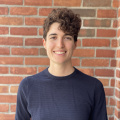
Esti Blanco Elorrieta
Harvard University
The goal of my research is to develop a comprehensive account of how humans process language, which I try to achieve by covering the full spectrum of manners in which humans acquire and experience language. In my research, I combine insights from monolingual and multilingual individuals, who process language through speech or sign, to inform an inclusive and comprehensive neurobiology of language. To obtain an extensive profile of these experiences, I combine insights from linguistics, psychology and neuroscience with a range of approaches, including neuropsychology, neuroimaging, and behavioral methods. Further, I take the most naturalistic approach possible to inform a theory that can not only account for laboratory based experiments but rather aims to capture the multifaceted and socially influenced experience of what it means to communicate in the real world.

Marco Calabria
Universitat Oberta de Catalunya
I got my degree in Psychology in 2002 at the University of Padua (Italy). In 2003 I worked as a clinical neuropsychologist at the Cognitive Neuroscience Laboratory in Brescia collaborating on projects that investigated language deficits in patients with Frontotemporal dementia and the use of brain stimulation as a rehabilitation tool for patients with neurodegenerative diseases. From 2006 to 2009, I did my PhD in Psychobiology at the University of Padua focussing on the neurophysiological components of semantic and episodic memory in elderly. In 2009, I joined the Speech Production and Bilingualism (SPB) at the Center for Brain and Cognition (Pompeu Fabra University). Since then, my research interests focus on the study of word production, non-linguistic control processes in brain-damaged (post-stroke and neurodegenerative diseases) individuals with emphasis on bilinguals, and on bilingualism as a contributor to cognitive reserve in dementia. I was awarded the Spanish Government’s ‘Juan de la Cierva’ (2010) and the ‘Ramón y Cajal’ (2014) fellowships. Since December 2019, I am an Associate Professor of the Master in Neuropsychology at the Faculty of Health Sciences (Universitat Oberta de Catalunya) and member of Cognitive NeuroLab.
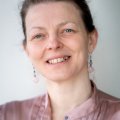
Judit Gervain
Università degli Studi di Padova
Judit Gervain is a Full Professor at the Department of Developmental and Social Psychology. She is trained as a theoretical linguistic, obtained a PhD in 2002 in Cognitive Neuroscience under the mentorship of Jacques Mehler from SISSA, Trieste, Italy. She then worked as a post doctoral researcher at the University of British Columbia, Vancouver, Canada. In 2009, she took up a researcher position at the CNRS, in Paris, France, from which she moved to the University of Padua in 2020. Her research focuses early speech perception and language acquisition in typically developing monolingual, bilingual infants as well as in infants with hearing difficulties. She uses behavioral as well as brain imaging techniques to explore the perceptual, linguistic and cognitive development of these infants and their underlying neural correlates. She has done pioneering work in newborn speech perception using near-infrared spectroscopy (NIRS), revealing the impact of prenatal experience on early perceptual abilities, and has been one of the first to document the beginnings of the acquisition of grammar in newborns and preverbal infants.
Matrikula prezioak
| Matrikula | 2023-04-19 arte | 2023-05-30 arte |
|---|---|---|
| 160,00 EUR | 200,00 EUR | |
| 210,00 EUR | 250,00 EUR | |
| 40,00 EUR | 40,00 EUR |
Kokalekua
Letren Fakultatea
Unibertsitateko Pasealekua 5. 01006 - Gasteiz
Araba
Letren Fakultatea
Unibertsitateko Pasealekua 5. 01006 - Gasteiz
Araba
